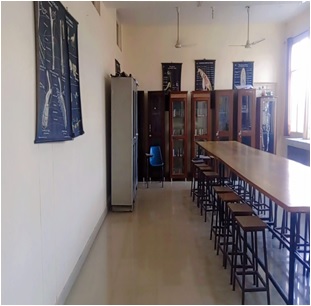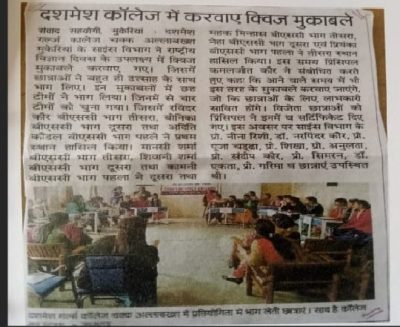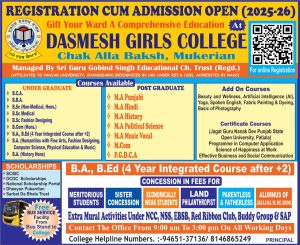Department of Zoology
The study of animal life is ancient, but its scientific incarnation is relatively modern.
Zoology is the branch of biology devoted to the study of animal life. It covers areas ranging from the structure of organisms to the sub cellular unit of life. Zoologists study the interactions of animals with one another and their environments, as well as the significance of the behaviour of animals. Zoology is both descriptive and analytical. It can be approached either as a basic science or as an applied science. Zoology today is as diverse as the animal kingdom it studies. It is now considered an interdisciplinary field that applies a great variety of techniques to obtain knowledge of the animal kingdom.
VISION – The holistic development of the student and make them able to contribute effectively for their welfare and society in this dynamic era.
Year of Establishment
2019
Highlights
The Department of Zoology was established in 2019 with a view to train the students desirous of learning, understanding, teaching and practicing various aspects of Animal Sciences. There is one laboratory in the Department. The laboratory is well maintained with necessary equipments purchased out of grants provided by Management. The Department is enriched with learning resources such as a specimens, slides & various practice materials.
Well qualified staff
Comfortable spacious rooms
Use of Audio Visual Aids
Periodic Tests and Assignments
Vermicompost Unit.
GOALS & OBJECTIVES
The Department aims to provide a broad multidisciplinary course in Zoology.
To train students in a wide range of science-based skills that provide the learning base for future careers in disciplines such as health sciences, agriculture, environmental management, the emerging biotechnologies, publishing, teaching, research and management.
To achieve excellence in teaching, research and extension education in the field of Zoology
To inspire knowledge across diverse fields of Zoology.
To know the life cycles and mode of reproduction in members of fauna.
To equip our students with good quality to appear for competitive examinations.
To make the students to understand the needs of Zoology in shaping our planet.
Programme Offered
Under Graduation: Zoology as one of the subjects in B.Sc Medical



























